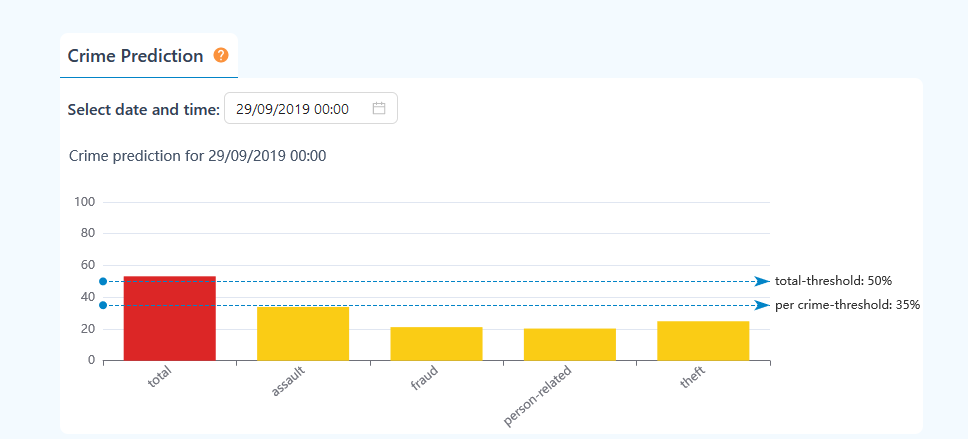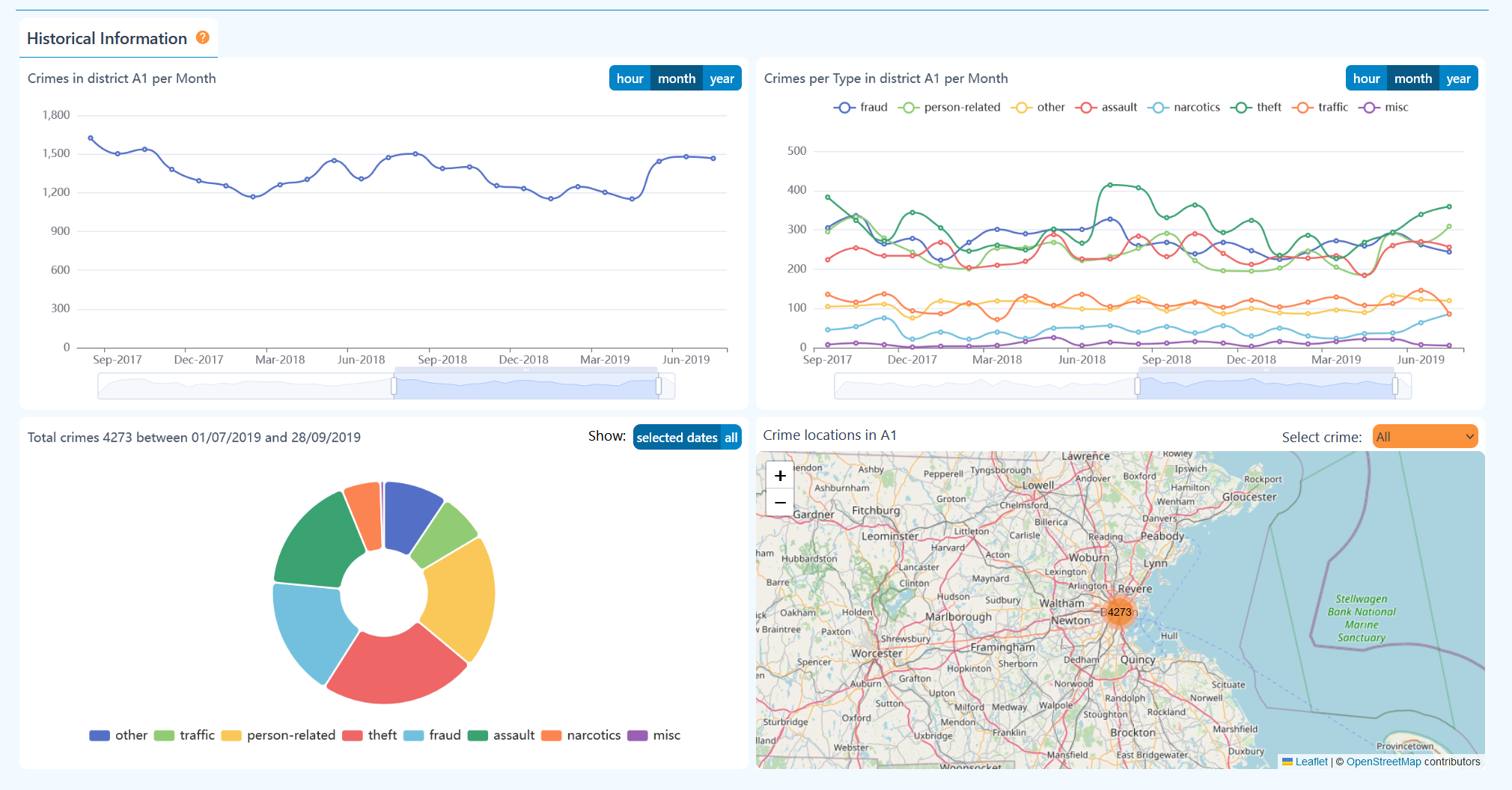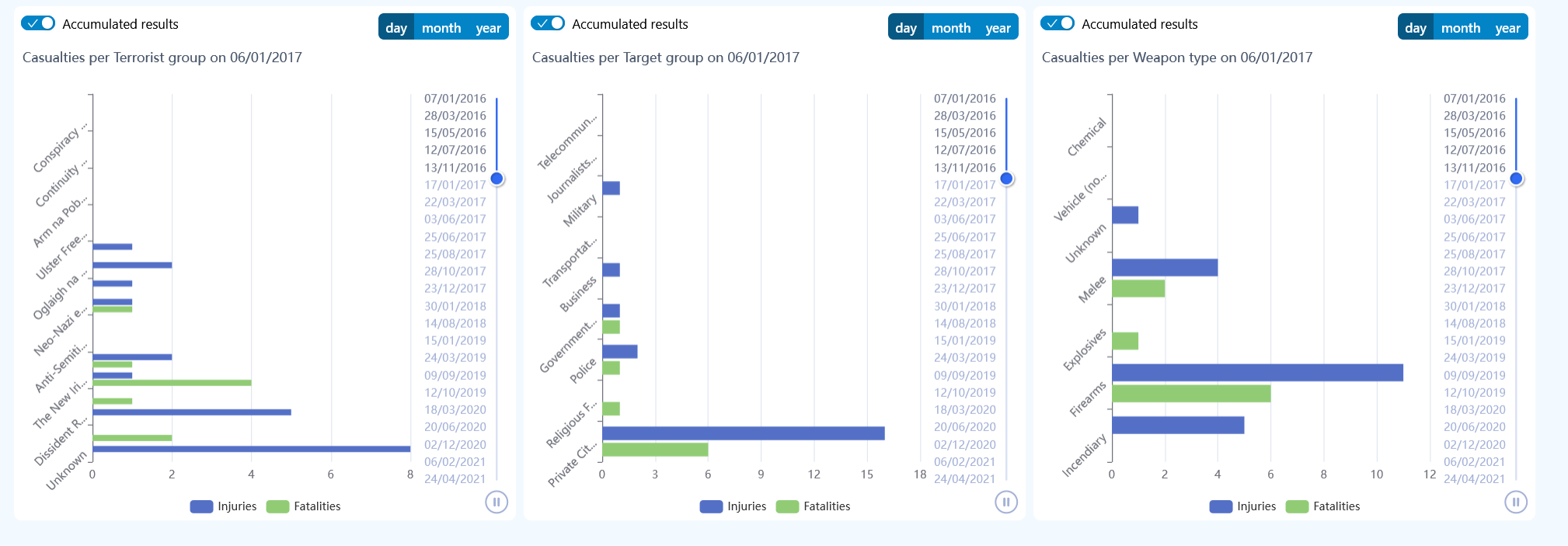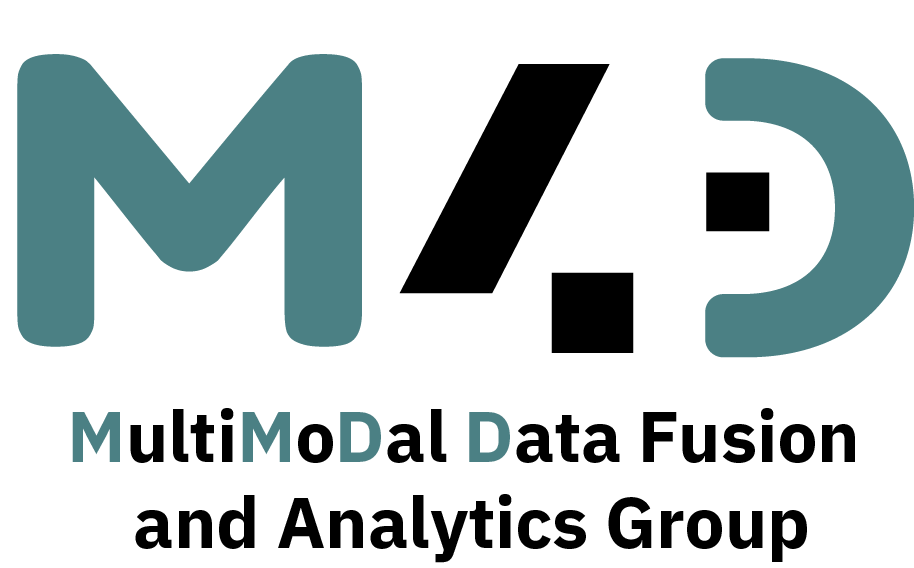The Predictive Analytics Framework for Crime and Terrorism aims to project the risk of the likelihood of occurrence of future criminal and terrorist incidents and incorporates two tools:
(1) the Predictive Analytics Tool for Crime Risk Projection; and
(2) the Predictive Analytics Tool for Terrorism Risk Projection
1. Predictive Analytics for Crime Risk Projection
The Predictive Analytics Tool for Crime Risk Projection provides a prediction of whether an urban crime is likely to take place within a specific region of a target city within a specific time period in the near future and also provides the likely type of such urban crimes. The tool provides a user friendly graphical user interface (GUI), presenting information and statistics on historical data (past criminal incidents) and the likelihood of upcoming criminal events (type and region) that may take place in the next few hours. This likelihood is estimated using state-of-the-art machine learning and deep learning models.
An example related to the Crimes in Boston dataset [1], which contains more than 300,000 crime incidents, is provided below. Based on historical criminal incidents of the last 24-hours, the tool estimates the likelihood of criminal incidents for the next few hours in specific districts of the city. A visualisation of the crime risk projection/prediction results once a district of interest has been selected and a visualisation of past crime incidents is provided below.


The following video presents a brief overview of the provided functionalities:
2. Predictive Analytics for Terrorism Risk Projection
The Predictive Analytics Tool for Terrorism Risk Projection provides a prediction of the likelihood of terrorist incidents within a specific time period in a target country based on machine learning and deep learning models. These models are trained on local news data sourced from the Global Event, Language, and Tone Database (GDELT Project) for the target country, while the terrorist incidents recorded in the Global Terrorist (GTD) Database serve as the ground truth. This tool provides a user friendly GUI, providing information and statistics on historical data (past terrorist incidents) and the likelihood of occurrence of future terrorist incidents.
An example related to the data related to the United Kingdom is presented below. Based on the GDELT data related to the country, the tool estimates the likelihood of occurrence of terrorist incidents within a two-day span in a specified country. A visualisation of the terrorism risk projection/prediction results once a country of interest has been selected and a visualisation of past terrorism incidents are provided below.


The following video presents a brief overview of the provided functionalities
3. System Requirements and Prerequisites
The minimum hardware requirements of the tool are:
- A total of ca. 2 GB storage for the docker images
- 8 GB RAM
- CPU i5
- Supported OS: Linux/Windows/MacOS
The software prerequisites are:
- Docker server
- docker-compose
- This link https://www.docker.com/ provides the docker apps and installation details for windows 10, 11 (home, pro etc.), mac os (intel chip or apple chip) and linux.
- The latest version of docker-compose is required in Ubuntu os (version 1.29)
4. References
[1] Crimes in Boston (2022)https://www.kaggle.com/datasets/AnalyzeBoston/crimes-in-boston [2] The GDELT project
https://www.gdeltproject.org/ [3] Global Terrorism Database
https://www.start.umd.edu/gtd/
5. Contact Information
Please contact us if you are interested:
Georgios Koutidis (gkout@iti.gr)
Kostas Loumponias (loumponias@iti.gr)
Theodora Tsikrika (theodora.tsikrika@iti.gr)
Stefanos Vrochidis (stefanos@iti.gr)
